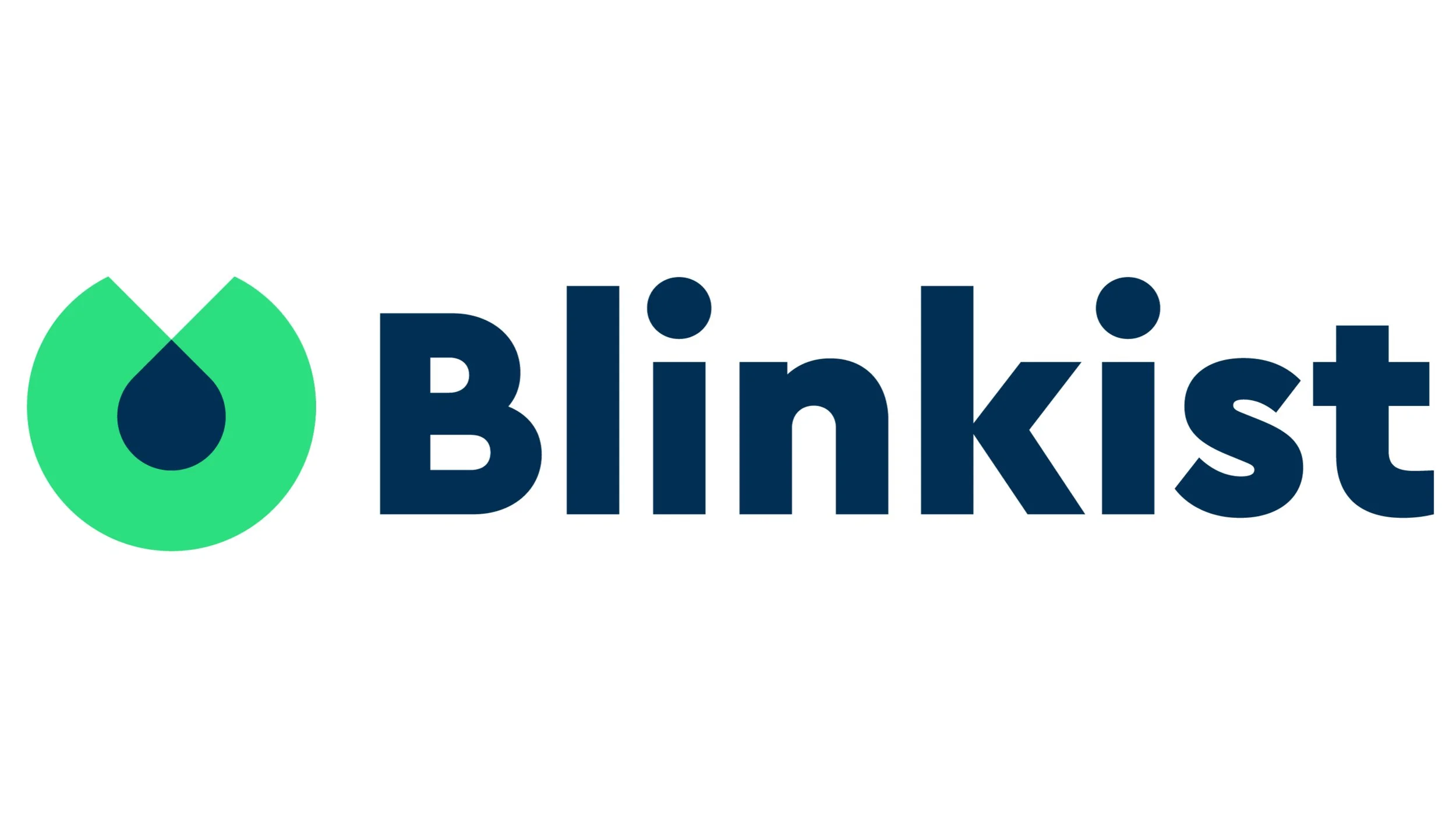
Blinkist
Why is reading important?
Why is reading important?
From reducing stress and increasing the quality of sleep to slowing down the onset of dementia, the benefits of regularly putting time aside to lose ourselves in a good book are far-reaching and, in some cases, life-changing. If we all knew how good regular reading is for us, perhaps we would make fewer excuses not to do it.
If you need more reasons to make regular reading a part of your life, we’ve put together a comprehensive list of the benefits of reading for adults as well as some guidance on how to read more that will have you putting down your phone and picking up a book in no time.
Reading slows the progress of dementia and Alzheimer’s disease
Mental stimulation is considered one of the pillars of Alzheimer’s prevention, and, as we all know, few things are more mentally stimulating than reading. Unlike watching television or browsing the internet, this particular type of ‘mental gymnastics for the brain’ keeps your brain active and engaged which can slow down the onset of symptoms in Alzheimer’s patients significantly. Researchers at the Cochrane Library, a scientific review board in the United Kingdom found that reading and other similar activities like playing chess or doing puzzles: “improved scores on memory and thinking tests for those with dementia, equivalent to about a six to nine month delay in worsening of symptoms.” With such long-term and life-altering consequences, not to mention a wholly enjoyable activity, shouldn’t we all be prioritizing our reading a little more? Even reading for a few minutes every day can help with these benefits. If you don’t have a lot of time to spare, using a reading app like Blinkist* can help you squeeze in a few minutes, no matter how insane your schedule looks.
Reading reduces stress and relaxes you
Distraction is a great way to get out of your own head and break a negative thought-cycle. If you’re stressed about a situation at work, or you’re worrying about an upcoming date, few things will distract you — and therefore de-stress you — as effectively as a really good book. Irrespective of what you’ve chosen to read, a well-written book can transport you to a completely different place, allowing you a little peace from the stresses of daily life. Make this a regular habit and you’ll soon find that curling up with your book after a long day will become your own little oasis of calm from the intrusions of the outside world. We are also more likely to feel calm and confident if we know more about a certain topic. By reading great nonfiction, we can learn a little something that can help us feel we have a handle on whatever the world throws at us.
Reading improves focus and concentration
We all love the internet and its conveniences, but we all know that it’s harder to concentrate these days. With numerous tabs open on our laptops, our phones on our desks, and colleagues walking around our open plan offices, most of us are distracted most of the time. Why is reading important as an effective strategy for combating this? Studies have found that a book or longer piece of text absorbs our entire focus, making it much less likely that we’ll attempt multitasking, or get distracted easily. Try regularly reading on your commute to work in the morning and you’ll find that, once at work, you remain more focused on your key task and your productivity levels will soar. If you’re not up for lugging a book around, and your e-reader doesn’t see much action, don’t worry — all you need is your phone. The Blinkist* app provides key insights from nonfiction books that you can read — or listen to — in just 15 minutes or so. So, by taking a few minutes to read during your commute, you can set yourself up for a great, focused day, while learning something new, too.
Reading can reduce depressive thoughts
One of the lesser known but fascinating benefits of reading is that it can even help to combat negative or depressive thoughts. Self-help books have been found to help those who suffer from mild mental illness as their messages of self-improvement provide hope to people who may have thought there was none. This type of literature can also provide readers with useful tactics for dealing with anxiety and grief that they would otherwise not be aware of. Interestingly, those who read spiritual texts have demonstrable lower blood pressure than those who don’t, so whatever your current belief system, reading a few positive mind-over-matter books could certainly be worth a shot. If you’re not sure where to start, you can browse a range of self-help and spirituality titles in the Blinkist* library.
Reading makes you more empathetic
How can regular reading increase your empathy for others? It’s thought that by reading about the lives of people who are very different from yourself, your empathy for others naturally increases. For example, if you knew very little about a particular refugee crisis before you read about it, you might struggle to be able to put yourself in the shoes of a refugee. However, a good book on the subject could open your eyes to the suffering of others that you have never experienced first-hand. With a first-person account and a well-told story it’s much easier for you to relate on a personal level to people you may never get the chance to meet in real life, thereby increasing your empathy levels overall.
Reading improves your general knowledge
It’s an obvious one, but we often forget how much reading improves our general knowledge. Whether our main interest is American politics or we’ve got a passion for holistic healing, there’s always more out there to learn and absorb than we might have thought. Whatever our motivation might be for increasing or improving our general knowledge — impressing friends at parties or quenching a thirst for more information — expanding our reading list and making a daily habit out of reading is a sure-fire way to do it.
Reading boosts sleep quality
We’ve probably all been there: fast asleep with a book in our lap. Thanks to some of the other benefits of reading we’ve already mentioned like the reduction of stress and feelings of relaxation, it’s not at all uncommon for a good read to send us off to sleep. But it’s not just because we’re so calm and relaxed, those ‘mental gymnastics’ we talked about earlier were no exaggeration; absorbing information and focusing for a long period of time are a workout for your brain, so it’s no wonder we easily drop off to sleep when we’ve been enjoying a good book! Try reading for fifteen minutes before you go to bed tonight and see how quickly you fall asleep, you’ll be surprised how effective it is at switching your brain off at the end of a long day.
KANO SURVEYS
Kano analysis techniques made simple.
Let me introduce Wills’ KANO survey tool:
Will is a former software engineer, now product manager. He is building KanoSurveys.com because he loves the Kano analysis technique and couldn't find a great tool to help him apply it.
He is planning to build out the KanoSurveys.com platform into the market's best customer satisfaction tool. Here's how he wants to achieve it:
The vision - Kano has two main problems:
1 Running and analyzing surveys is hard
It's hard to actually execute because of the special format of the surveys and bespoke analysis. A high quality participant user experience is vital to the quality of the insight so standard survey tools are often sub par for Kano. Then importing and exporting data between different systems and possibly writing custom code to perform detailed analysis is just too high a barrier.
This means people are put off Kano before they've been able to try it, even though they want to because it's taught in schools, on blogs, in conferences and so on.
The vision is to build a platform that fulfills all the normal criteria expected of a great user research tool - it does the job well, it's easy to use, configurable, brandable, automated so it does all the heavy lifting for you, real-time so you're always getting the latest info, and so on.
2 Applying Kano insight is hard
The insight can be hard to apply because the basic categorization is quite high level, and so it's not obvious how that feeds into a roadmap or how to use that insight to prioritize your work.
We need more detailed analysis to dig into the data (classic discrete analysis, new continuous analysis, confidence levels, sub-categories, radar charts and so on), and extra features to layer additional insight on top (demographics, importance, CSAT, comments and so on).
Being able to slice and dice the data and get actionable insight is the key to making Kano a staple in every team's user research toolbox.
The vision is to create a joined up all-in-one tool for measuring customer satisfaction using a combination of Kano and other techniques, and a complementary Kano "university" that helps you apply your survey results immediately and provides you with the necessary information to educate yourself and your colleagues on the benefits of Kano.
The approach - it's all about the hashtags!
#buildinpublic, #openroadmap
This site is part of the #buildinpublic community. That means Will is sharing his progress, milestones, challenges, successes and so on. He posts on Twitter under @kanosurveys.
This includes the idea of an open roadmap. That means you can see their roadmap, what they are working on, what's coming up next, and contribute your votes and comments to let them know what's important to you. Their roadmap is here on Trello.
#indiehacker
He is an #indiehacker. That means someone who builds software and grows a business without a team (or maybe with a small team). Courtland Allen runs indiehackers.com and has a great definition here.
The upshot of this is that he is not a huge enterprise with dozens of sales or support staff so he builds the product to sell itself, and to be robust so that you shouldn't need support. He is there if you need him though, you're not on your own!
#openstartups
Finally he wants to contribute to the #openstartups movement. This means he is going to be open about customer volume and revenue, and how the site is growing. He'll post all this on the Twitter link above.
All of this means that he is very open to feedback and suggestions. If you want to chat, drop him a line on Twitter or via email (hello@kanomodel.33mail.com)
Instead writing more just go and visit Wills’ site directly.
Stay connected












Ad
Want to get ahead faster? We are listening to the Blinkist* summaries - because it’s simply the best and fastest way to gain new knowledge.
* = Affiliate Link













